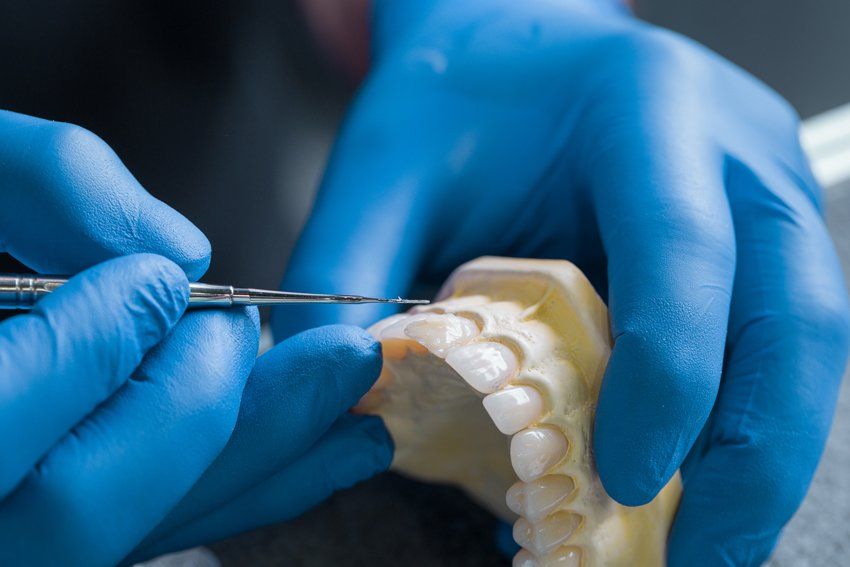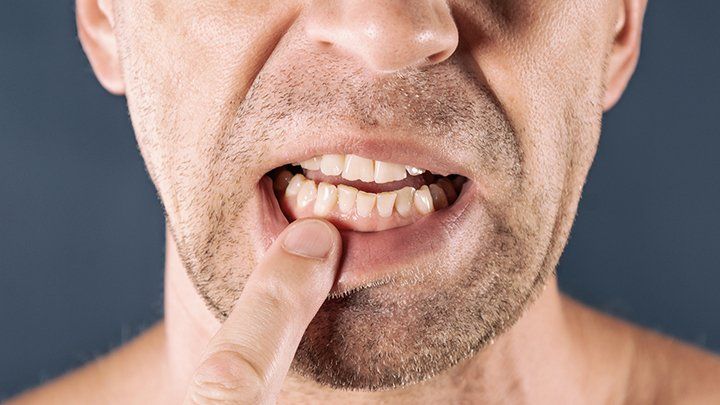What to Know About a Root Canal and the Complications It Prevents
- By Admin
- •
- 01 Jul, 2020
- •

According to the American Dental Association (ADA), 22 percent of adults surveyed forgo dental visits due to a fear of the dentist. Unfortunately, a root canal is often a procedure an adult fears, even more so than routine dental appointments. Despite the concern some adults have regarding the procedure, a root canal can help prevent tooth loss in a few different ways as well as other complications.
General Information About a Root Canal
During a root canal, your dentist removes the pulp of a tooth, which is the soft part inside of a tooth. A dental practitioner performs this procedure if you have an inflamed, infected, or dead tooth pulp. The pulp death, infection, or inflammation may stem from a severe, untreated cavity. Sometimes, it occurs from a tooth injury, a crack or chip in a tooth, or repeated dental procedure performed on the same tooth.
Once your dentist removes the pulp, he or she cleans and seals the tooth. Generally, your dentist will advise you to receive a crown to strengthen the tooth.
How a Root Canal Prevents Tooth Loss and Other Complications
First and foremost, when you have an infection or inflammation in the pulp of your tooth, it may become painful. A cavity can worsen and damage your entire tooth. You might also experience an abscess. Eventually, you may even need to have a tooth extraction if you choose not to have a root canal. Plus, gum disease is also possible.
Cavities
If the initial cause of the root canal is a cavity, the decay may grow larger. As the cavity grows, your tooth may have a tremendous amount of damage. Once the damage is severe enough, a dentist can't repair that tooth, and your only option is an extraction. The teeth that remain beside the missing tooth may shift since your teeth act as placeholders for one another.
Damage to a Tooth
If your tooth sustains damage that results in the need for a root canal, you want to consider having the procedure. If you have open portions of your tooth, you allow bacteria to enter into the crack. Once the bacteria set in, they eat away at the remaining portion of your tooth. Ultimately, this damage can cause the tooth to become completely unrepairable, and your only option is a tooth extraction.
Abscess
Another problem that may occur without a root canal is an abscess. An abscess is an infection that occurs in the pulp of your tooth. Specifically, an abscess is a pocket of pus that forms there. An abscess doesn't heal without treatment and may cause you pain. Unfortunately, without treatment, the infection can spread to your jaw and even your head and neck.
Once the abscess spreads, the treatment process is more complicated than just a root canal, especially if the infection turns into sepsis. If you have a weakened immune system, the chances of the infection spreading are even greater.
Periodontitis
Periodontitis, more commonly known as gum disease, is an infection of your gum tissue. The bacteria that cause periodontitis are different from the bacteria that cause cavities. However, if you have a severe cavity that requires a root canal, the cavity could irritate your gums and lead to gum disease.
Moreover, if you have an abscess or a missing tooth, you can also develop gum disease. Gum disease, without treatment, puts you at risk for losing one or more teeth.
When you go to the dentist and your practitioner informs you that a root canal is necessary, you want to consider the benefits. The most prevalent concern is the possibility of tooth loss. Infection that spreads to other parts of your body is possible as well.
Schedule an appointment with Teresita V. Hernandez, DDS, if you fear you have a tooth infection or severe damage to a tooth by calling us today.















